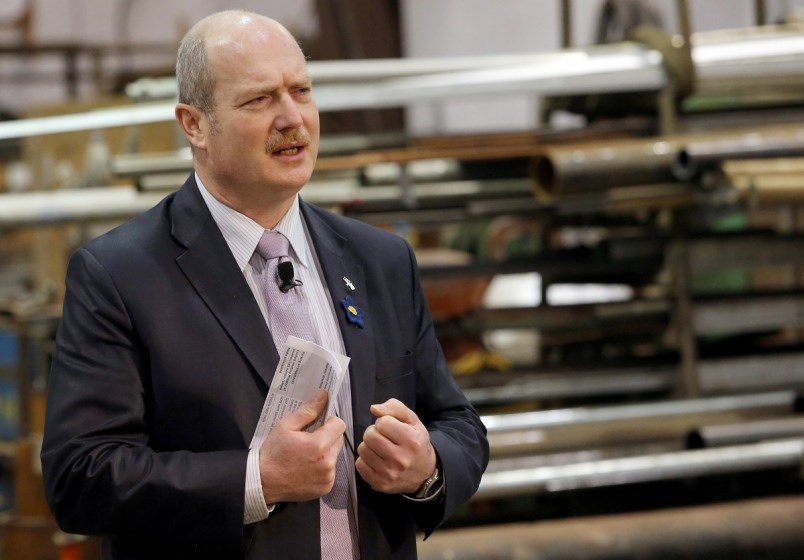The looming departure of B.C.’s longest-serving MLA serves as a reminder of the critical role he played in putting the so-called “free enterprise coalition” political party, and what his departure may mean for its very future.
B.C. United MLA Mike de Jong, first elected as a B.C. Liberal in 1994, announced last week he is not seeking re-election in the next provincial election, although he is seriously considering taking a leap onto the federal scene by running for the Conservative Party in the next federal election.
It was de Jong’s historic byelection win in the riding of Matsqui that stamped out any chance the once-powerful Social Credit Party could stage a political comeback after being routed in the 1991 general election.
His victory ensured the B.C. Liberal Party, a virtual political non-entity until its electoral breakthrough in 1991, would eventually become the free enterprise coalition around which non-NDP voters would support at elections.
De Jong defeated Social Credit icon Grace McCarthy by just 42 votes. Many have felt that McCarthy had enough gas in the tank to steer her party back to prominence if she proved to be victorious.
But it was not to be and after seven more years (and two more elections) in Opposition, de Jong and the B.C. Liberals took power in 2001. He served 16 years in seven different cabinet portfolios – including finance, health and attorney-general – before returning to another ongoing stint in Opposition.
De Jong will mark his 30th anniversary as an MLA next month, making him the second-longest serving one of all time (second only to Tom Uphill from the Kootenays, who served almost 40 years).
He is now the ninth sitting B.C. United MLA to declare they are not running again. This is quite a few and presents a double-edged sword for the party.
On the one hand, the departure of so many veterans allow the party to “renew” itself, which it definitely needs to do.
But on the other hand, the loss of so many sitting members robs the party of the advantages – name recognition, a loyal and dependable voting base – that comes with being the incumbent candidate.
Those advantages will be critically important come the next election because the B.C. Conservative Party will be fielding candidates in most ridings and incumbent B.C. United MLAs likely will have the best chance of avoiding a vote-split on the center-right part of the political spectrum.
A look at the changing demographics and shifting voting patterns in de Jong’s own riding of Abbotsford West highlight the challenges B.C. United may be facing in hanging on to that seat without his name on the ballot come the October vote.
For example, de Jong won the seat seven times after that narrow by-election win. His margin of victory was always large: well over 50 per cent of the vote, with the margin being at least 4,000 votes.
However, in the 2020 election his vote fell below 50 per cent, and the victory margin was down to 1,800 votes. While still an impressive win, that closer margin means a B.C. Conservative candidate poses a significant threat to whoever is de Jong’s successor.
The NDP scored an historic win in the neighbouring riding of Abbotsford-Mission in 2020. Data from the 2021 federal census shows Abbotsford is home to more young families than the provincial average, which suggests its image of an aging Bible Belt community is no more.
Mike de Jong helped build the free enterprise coalition. We shall see if his pending departure helps play a role in any breakup of it.
Keith Baldrey is chief political reporter for Global BC.



